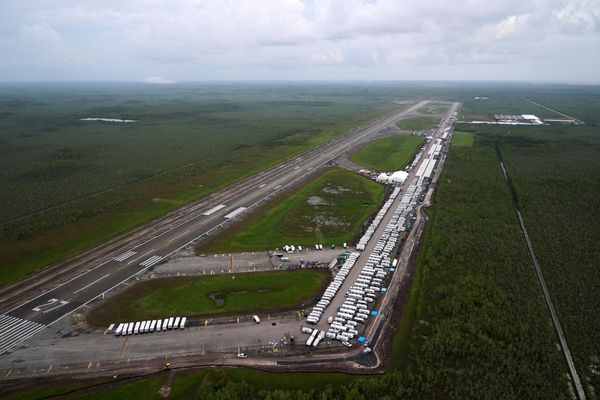
The US biofuel program is probably killing endangered species and harming the environment in a way that negates its benefits, but the US Environmental Protection Agency (EPA) is largely ignoring those problems, a new federal lawsuit charges.
The suit alleges the EPA failed to consider impacts on endangered species, as is required by law, when it set new rules that will expand biofuel use nationwide during the next three years, said Brett Hartl, government affairs director with the Center for Biological Diversity (CBD), which brought the litigation.
The agency has twice ignored court orders to study the impacts and is probably dodging the requirements because ethanol production “props up” the corn industry, which has a politically powerful lobby, Hartl added.
“The Biden administration failed to even modestly reform this boondoggle and crumbled again in the face of political pressure from powerful special interests,” Hartl said. “Our streams and rivers will choke with more pollution and coastal dead zones will continue to expand.”
The EPA said in a statement that it does not comment on ongoing litigation.
About 40% of all corn grown in the US is used for ethanol production, and nearly half is used as animal feed.
The Clean Air Act requires the EPA to set minimum levels of biofuel usage for the transportation sector. The new rule approved by the agency calls for about 15bn gallons (57bn liters) of conventional corn ethanol for each of the next three years, plus an increase from 5.9bn gallons to 7.3bn gallons of advanced biofuels during the same time period.
While the fuels are designed to decarbonize the transportation sector, their production eliminates wetlands and prairie land that act as carbon sinks, Hartl noted. The EPA in 2018 estimated that up to 7m acres (2.8m hectares) of land had been converted to grow corn for ethanol fuel.
Ethanol production also pollutes water. Regulations around pesticides and fertilizers used in corn grown for ethanol fuel are much looser, which means much higher levels of dangerous chemicals run into surface and groundwaters. The pollution probably plays a significant role in dead zones in the Gulf of Mexico after pesticides flow down the Mississippi River, Hartl said.
Still, the EPA has failed to adequately scrutinize those issues, he added, and has failed to fully comply with the Endangered Species Act. It requires the agency to complete consultations with the US Fish and Wildlife Service and National Marine Fisheries Service to address harm to endangered species from land conversion, pesticides and fertilizer use.
The biofuel rules cannot “jeopardize the continued existence of any endangered or threatened species or result in the destruction or adverse modification of designated critical habitat”, the law states.
The EPA is using “dirty tricks” to circumvent the law, Hartl said. Instead of meeting with the agencies before the rule was finalized, the EPA skirted the process by consulting with the agencies after it had completed its new rules, and just days before it sent the rules to the White House for final approval, Hartl said.
The move comes after the DC circuit court ordered the EPA to consider harm to endangered species in 2019 and 2020. In a more recent settlement on the issue, the EPA again promised to properly analyze the fuels’ impact on the environment, but did not, Hartl said.
The agency has essentially claimed the issue is too complex to study and it has limited authority, Hartl added, which he characterized as a “cop-out”.
“Everyone knows [the EPA is] hugely determinative as to how much of this stuff makes it into people’s cars,” Hartl said. “Last time I checked, that’s supposed to be their job – to assess harms to the environment and rationally address them – but they’re really not doing that.”
Because the litigation is over a federal rule, the legal process does not require plaintiffs to ask for a remedy, and Hartl said the CBD was still considering what it will ask the court to do. But he said its attorneys would seek a “more aggressive remedy” because the case marks the fourth time the two sides have been in court over the issue.
If the EPA did take an “honest look” at the environmental harms caused by biofuel production, it would probably find that the drawbacks outweigh the benefits, Hartl said, adding he suspects the agency knows it would come to that conclusion.
“There is very little evidence when you look at the full life cycle – transportation, processing, refining and, when you take into account land use, degradation – that corn ethanol is really making a difference,” he said.







